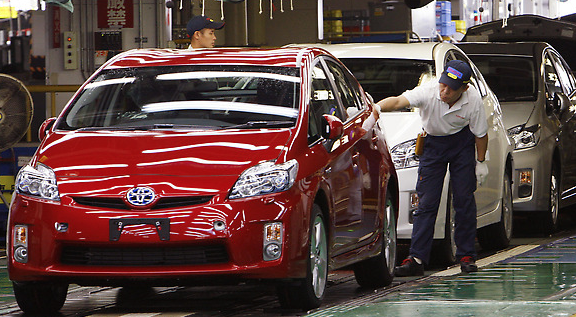Hybrid Cars Market Growing at Nearly 17% per Year
The global hybrid cars market is poised to grow at nearly 17% per year, according to a new research report.
The study depicts the presence of a highly competitive and emerging vendor landscape with a hint of fragmentation, says Transparency Market Research on the basis of a recently published report. And this competition is expected to further intensify with implementation of innovative techniques in the production of such vehicles. Most companies are banking on strategies such as mergers, alliances, partnerships, and acquisitions to generate splendid revenue and also to diversify their product portfolio.
Big players include: Toyota Motor Corporation, General Motors Company, Hyundai Motor Company, Ford Motor Company, Nissan Motor Company Ltd, Volkswagen AG, BMW, Honda Motor Co., Ltd., and FCA N.V..
To strengthen their global position in the market, many companies are putting efforts in research and developmental activities to increase the quality of their products.
As per expert analysts, the global hybrid cars market is estimated to reach a valuation of US$398.90 bn by the end of the forecast period in 2024. This is a decent growth from an initial revenue clocked at US$102.88 bn in 2015. S
Such growth is projected to occur at a stellar CAGR of 16.50% between 2016 and 2024. On the basis of hybrid car types, the series and parallel hybrid cars showcase higher demand as compared to the others under the same category, thus comprising leading segments. Geography-wise, Asia Pacific holds a winning position in the market owing to presence of well-renowned players.
Rising Concerns Regarding Increasing Pollution Levels Stokes Demand
A rising awareness about causing less harm to the environment by minimizing consumption of fossil fuels that emit a lot of pollution is primarily driving the hybrid cars market on a global scale. This is mainly due to the fact that hybrid cars mainly run on biofuels and conventional fuels mixed with eco-friendly additives. Increasing carbon emissions and spread of toxic gases also are a couple of reasons that are causing an increase in demand for hybrid cars.
With several governments implementing favorable norms and encouraging the sale of hybrid cars, the relevant market is expected to grow with leaps and bounds. Many governments are providing subsidies on the purchase of hybrid cars by increasing their affordability. This organization also are providing incentives to manufacturers for enhancing the production of hybrid cars, thus imparting a huge impetus to the hybrid cars market. Strict policy implementation on minimizing carbon emissions is also boosting the demand for hybrid cars from a worldwide scenario. These cars have better gas mileage and provide longer driving range. This has led to an increased preference from the customers’ perspective towards the hybrid cars.
High Developmental Costs of Hybrid Cars Stunt Progress
However, a high adoption rate of fuel-cell cars and rising demand for electric battery-powered vehicles is mainly responsible for driving growth in the global hybrid cars market. These varieties mainly act as substitutes for hybrid cars, and might depict a cost difference than the latter, thus being more affordable. Moreover, high production and developmental costs might make it difficult for small manufacturers having less capital to maintain their presence in the global hybrid cars market. Nevertheless, several companies are expected to improve the hybrid car technology and introduce new cost-effective car varieties in the near future. This could certainly offset most restraints affecting the global hybrid cars market.
T
Category: General Update, Green, News











